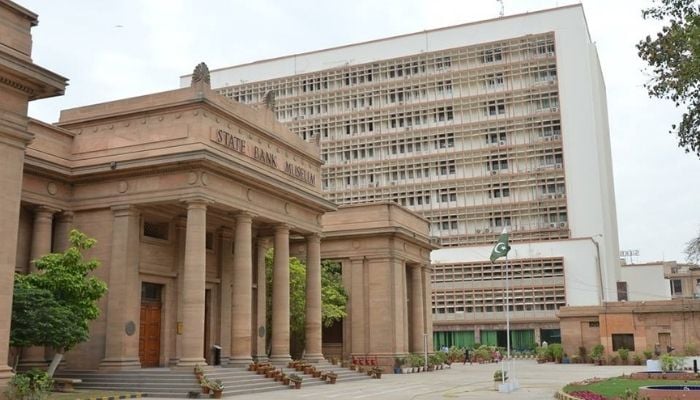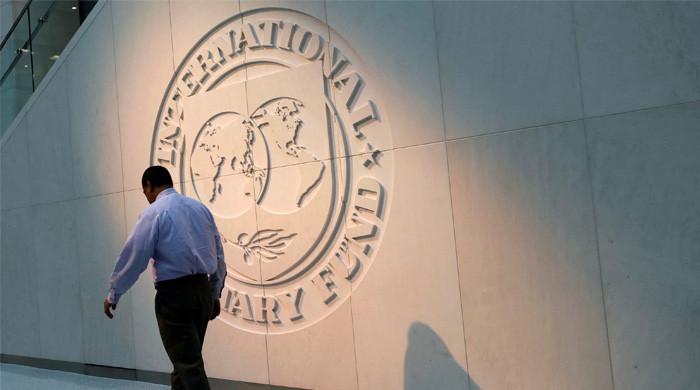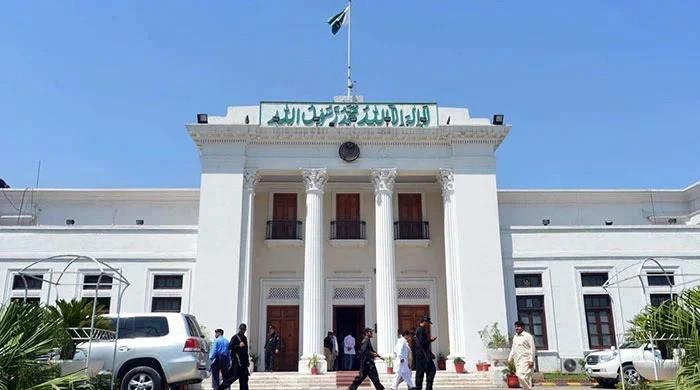SBP autonomy: Need of hour not just an IMF demand
Long overdue policy reforms such as granting the SBP operational autonomy shouldn’t be summarily dismissed
January 15, 2022

The State Bank of Pakistan (SBP) Amendment Bill 2021 sailed through the National Assembly amidst the opposition’s protest. Some of their suggestions were already incorporated in the bill when discussed in the National Assembly Standing Committee on Finance. Now dual nationals are barred from serving as SBP governors, and the governor would have to wait two years after leaving that position before joining any other international financial institution.
For a meaningful debate, it is essential to know what is being proposed. And why this bill was needed – as well as the pros and cons of the changes.
Let’s start by looking at what’s being proposed.
It is proposed that the government won’t borrow from the SBP. Except for refinancing facilities that the SBP has used to support access to credit in underserved sectors, it won’t take any monetary action for the government of Pakistan. A new coordination mechanism between the SBP and the government will be made since the Monetary and Fiscal Policies Coordination Board (MFPCB) will cease to be.
SBP employees, its board, or the Monetary Policy Committee (MPC) cannot be sued, prosecuted or held accountable for any of their professional actions conducted in good faith. Without the prior consent of the State Bank’s board of directors, no action, inquiry, investigation, or proceedings will be taken against the above by NAB, FIA, or provincial investigation agencies, bureaus, or authorities.
On the advice of the government, the president of Pakistan will appoint for a term of five years (eligible for the second term) the non-executive directors of the board and the governor of the SBP. The federal government will appoint deputy governors and external members of the MPC. Appointees would have no conflict of interest and will be able to be removed for serious misconduct as determined by a court.
An executive committee consisting of the governor, deputy governors, executive directors and other officers as needed would make policy decisions related to the SBP’s core functions and administration and management matters, except for appointing external auditors and the chief internal auditor. The latter would be selected by the board’s audit committee comprising independent directors.
The governor/SBP will submit an annual report to parliament on the Bank’s objectives, the conduct of the monetary policy, the financial system, and half-yearly state of the economy reports.
There are also plans to increase the SBP’s authorised (maximum shares that the SBP can issue) and paid-up capitals (money paid by shareholders). Authorised capitals will rise from one hundred million rupees to five hundred billion rupees and paid-up capitals by tenfold to one hundred billion rupees.
One wonders why all these changes are needed in the first place. The answer is straightforward. It is not the first time that a change is being proposed in the SBP Act of 1956. We have already amended the SBP Act of 1956 four times to stay relevant to a changing domestic and external landscape: in 1994, 1997, 2012 (by the PPP government) and 2015 (by the PML-N government).
The changes proposed in the SBP Amendment Bill 2021 give the SBP more functional and institutional autonomy. Questioning this autonomy is like wondering if you should send your kids to school. A financial regulator and banker’s bank must be able to make its own decisions.
One recent example of what can happen when you deny the central bank autonomy is what happened in Turkey, where the central bank didn’t raise interest rates despite neck-breaking inflation because President Erdogan ordered it. Despite the president’s efforts, inflation didn’t go down. It actually resulted in a massive depreciation of the Turkish Lira and more inflation. Are the opponents of the SBP’s functional autonomy willing to get to Turkey’s position by interfering in the SBP’s decisions? Obviously not.
Let’s see how the proposed changes would impact the functioning of the bank.
The government would have to focus on revenue generation instead of printing money if it cannot borrow from the SBP. The SBP’s regulatory functions would be strengthened if it stayed away from doing monetary acts for the government like rural credit, industrial credit, export credit, loans guarantees, and housing credit. The MFCPB was a coordination mechanism. In its absence, a close liaison between the governor and the finance minister will keep them updated on all things that concern the SBP and finance ministry jointly.
The fact that the government would nominate the board members, governor, deputy governors, and external members of the MPC is enough to ensure that the SBP wouldn’t become a ‘state within a state’.
Likewise, it shouldn’t be considered something above the law to protect the professional acts of SBP employees, board members, and MPC members carried out in good faith from prosecution. In addition, tenure-protected key appointments, in which appointees can only be removed if they are found guilty of serious misconduct, are desired to reduce political interference in a regulator’s functions.
Not that dual citizens are less loyal to Pakistan (the volume of remittances sent by overseas Pakistanis is greater than our annual export earning) but barring dual citizens from becoming governor and preventing the governor from joining any other international financial institution for two years after leaving the SBP should address the concerns of many about the loyalty of the governor of the SBP with Pakistan.
During their debate on the bill, the honourable members of the Senate may improve it further by balancing autonomy with responsibilities. For instance, it can be made binding on the SBP to work to achieve a medium-term inflation target that the government sets. Similarly, a clause could be added so that the governor has to present the results of his/her work to parliament whenever asked to do so, etc.
IMF programme or no IMF programme, the SBP Act was subject to four rounds of changes in the past. It can be amended for the fifth time to improve the SBP’s administrative and operational efficiencies. There are many reasons to disagree with the IMF. Nevertheless, long overdue policy reforms such as granting the SBP operational autonomy shouldn’t be summarily dismissed just because the IMF demands them.
The writer heads the Sustainable Development Policy Institute. He tweets @abidsuleri
Originally published in The News











